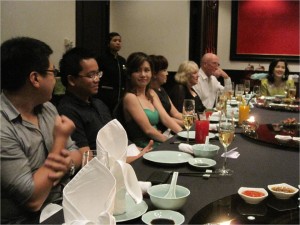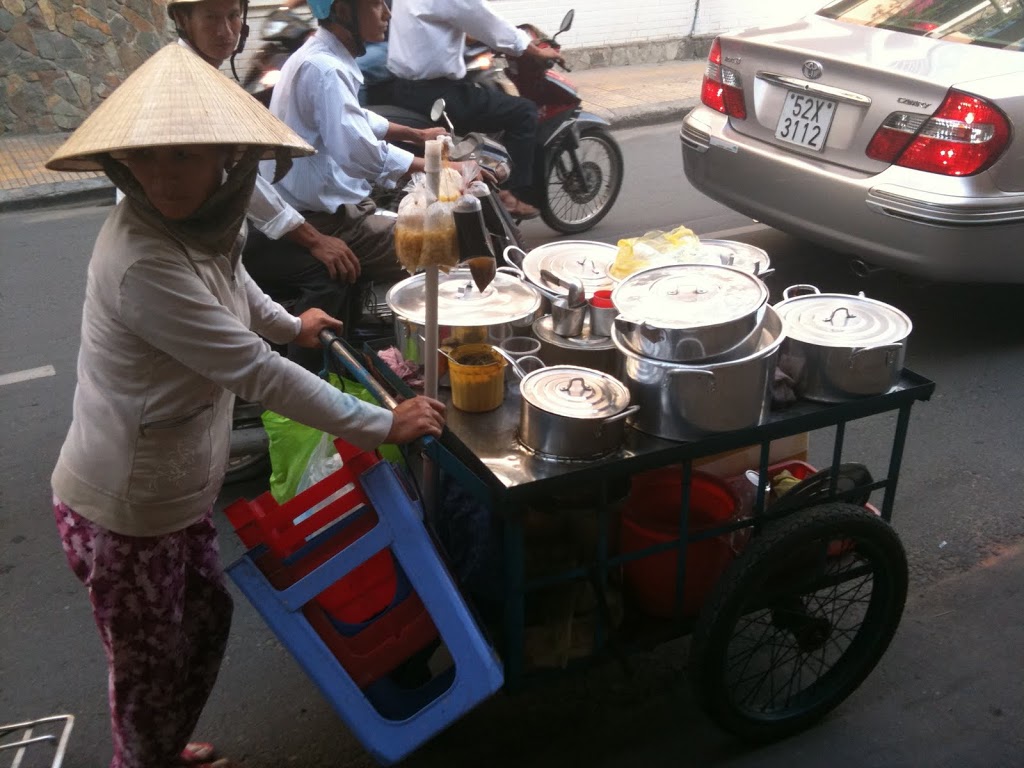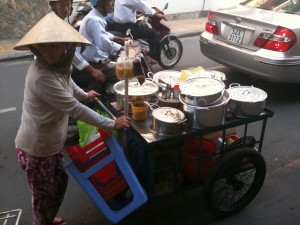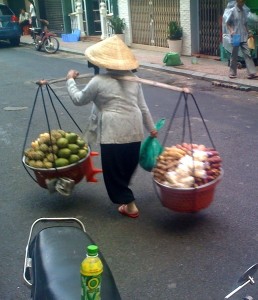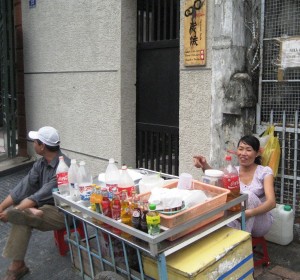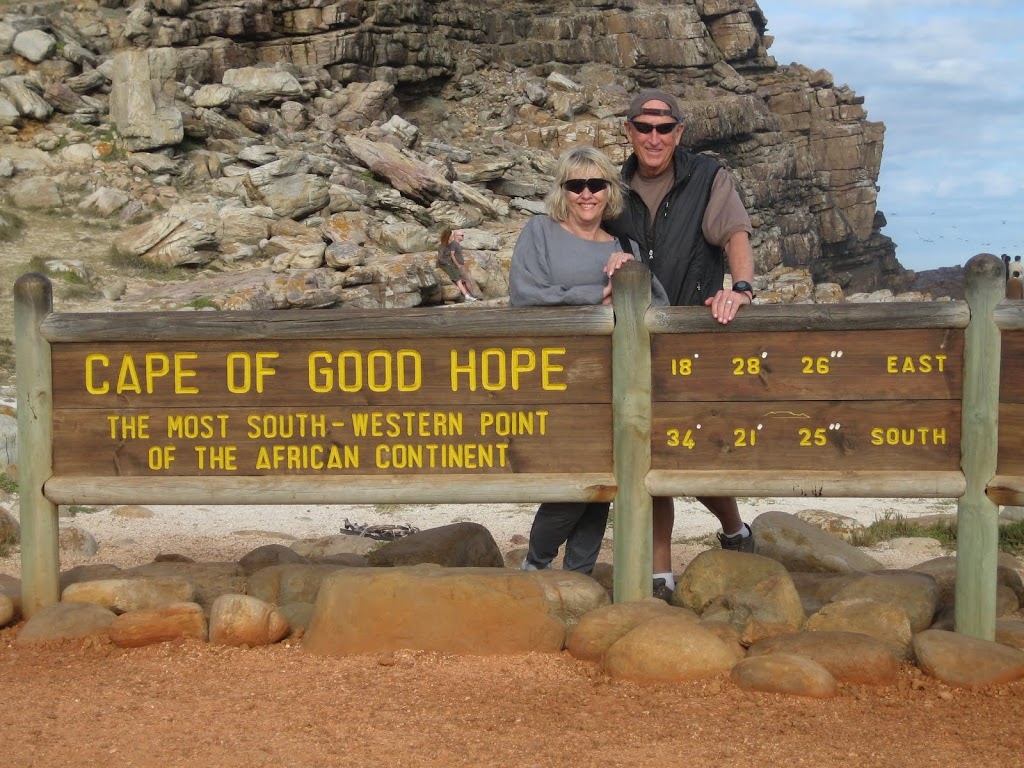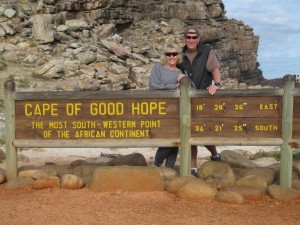The world is flat. The world is small. The world is at our fingertips. We have real-time face to face Skype conversations across the oceans. We “chat” with friends in Europe, Asia and the Americas on a daily basis. We follow the news on the European debt crisis and the air quality in Beijing and we know that all of these things affect us personally.
In Saigon Gucci competes with Pho 24 for our attention. Christian Louboutin sells $700 shoes next door to a counter that sells Rolex knockoffs for under $100. Almost anywhere in the world we can find a more or less homogeneous urban scene. Countries retain their traditions and cultures and on the street the scene can look very indigenous but at the top of the economic ladder, in the center of the largest cities, things start to look very familiar. Brands are global. Half of the world is wearing Nike shoes and baseball caps. Coke and Pepsi are the beverages of choice. Kids in Saigon dream of having their birthday parties at KFC, and there are half a dozen glitzy Vietnamese magazines devoted to fashion and the high life with “golf” in their titles.
I understand the Vietnamese yearning to succeed. They’re hard after it. They’re out early and work late. They save. They invest in their children. They want the stuff that signifies they’ve made it but if they can’t have it they’re willing to sacrifice so that their children can. The grand bargain in Vietnam is that if the parents sacrifice for the children the children will take care of them later. There is no Social Security system in Vietnam. The family is their retirement plan.
The world is indeed small and flat and Vietnamese graduates are competing with Western graduates for jobs on both sides of the ocean. Vietnam is still a developing country and the education system is woefully inadequate. Still, many Western colleges and universities are building satellite branches in Saigon and Hanoi. They recognize the Vietnamese thirst for education and their drive to succeed and prosper.
Many of us regret the Vietnamese rush to emulate the West. Beautiful French colonial buildings are demolished to make way for steel and glass high rises. There is no great affection for the French or their buildings but the demolition is a bargain with the devil. What goes up in its place is a soulless 21st century architecture that has no respect for the past, the culture, or history of the place. When the Berlin Wall came down and the East was opened up, the city of Berlin was careful to maintain and restore many of the rundown old buildings while encouraging new architecture and a mixture of styles. In Saigon and Hanoi it’s all about cost per square meter. It’s all about money.
The world is flat, but a horizon without features isn’t very interesting.








